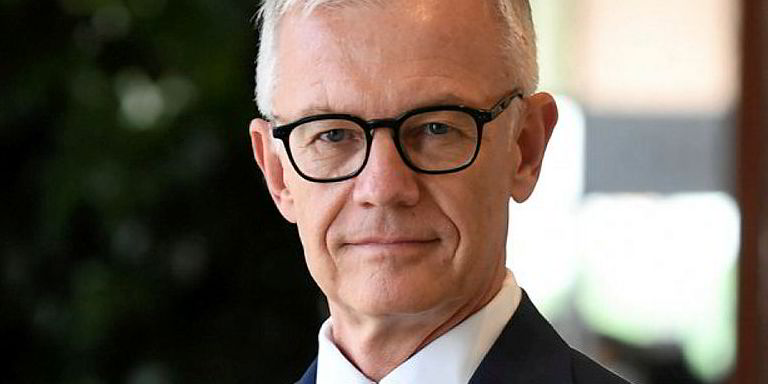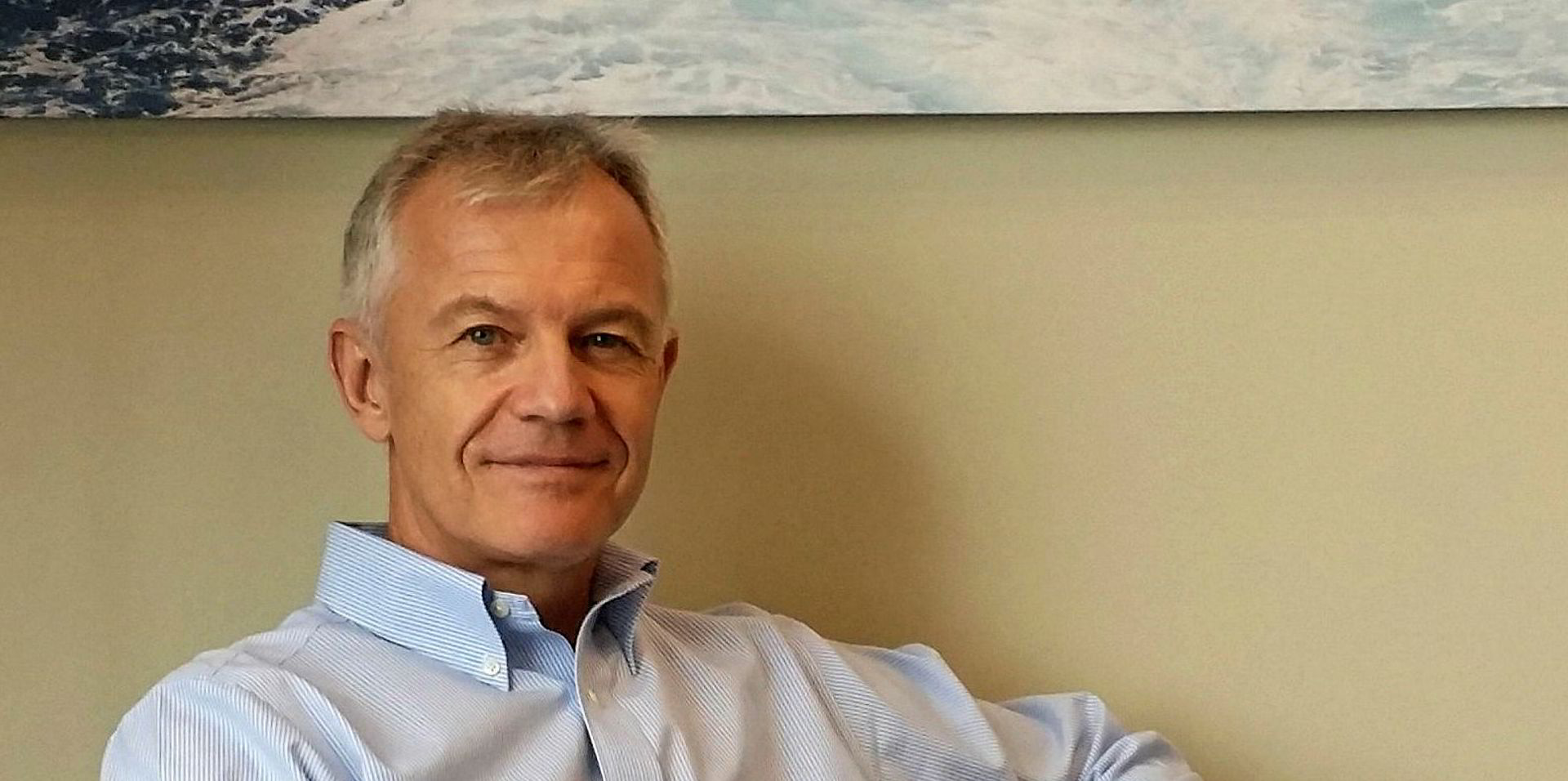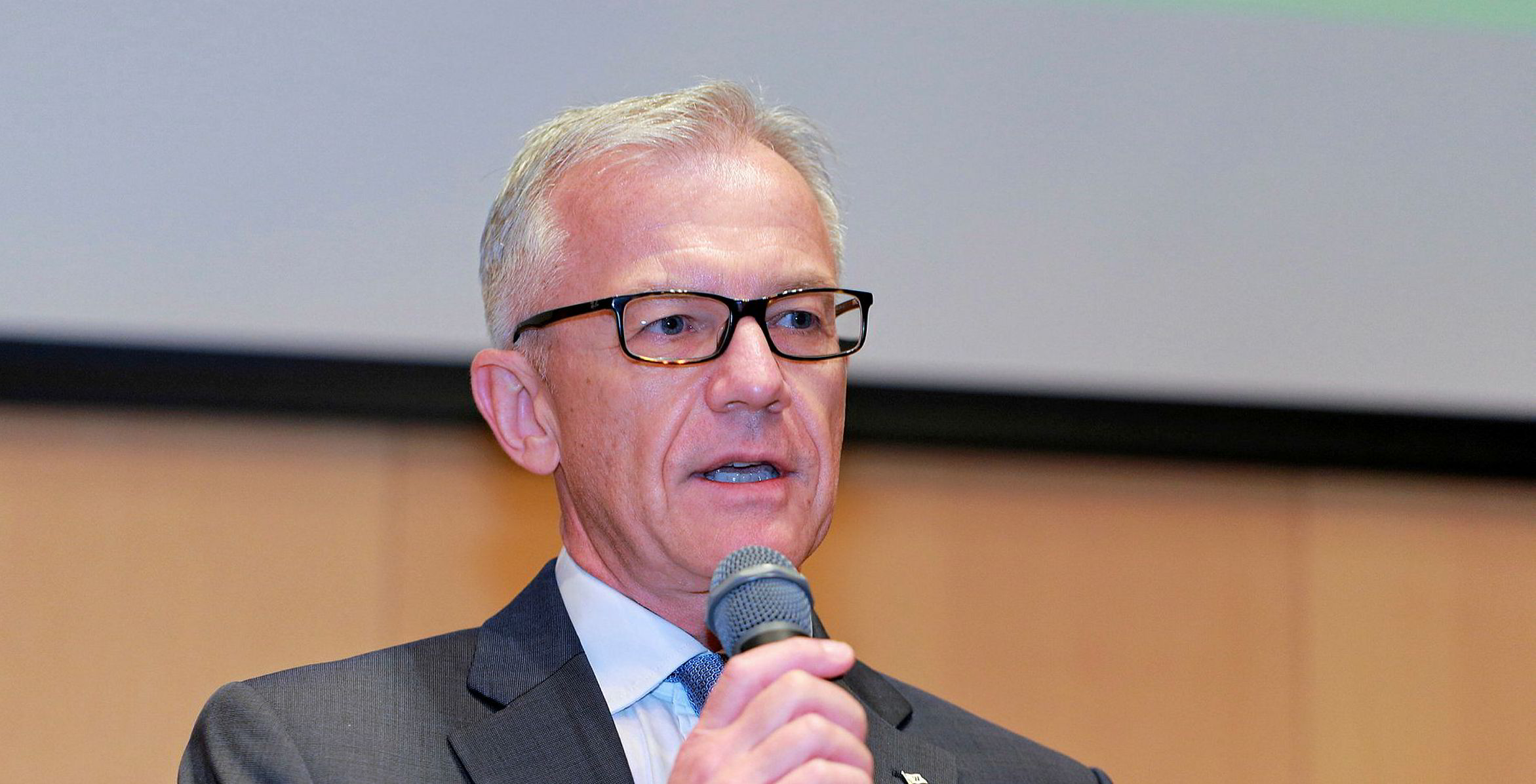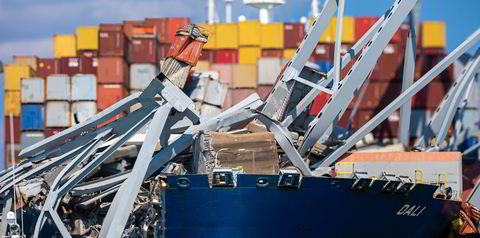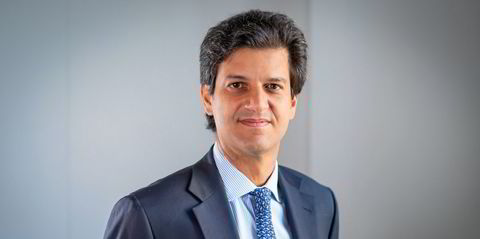China's appetite for energy will be the key to restoring Wilhelmsen Ship Management to its leading position as a third-party manager of LNG carriers, chief executive Carl Schou believes.
Besides looking to China for shipowner clients in gas, renewables and cruise, Schou is also forming partnerships on the crewing side and in newbuilding supervision with Shanghai partner WestEast Marine.
But Chinese gas imports seem to be the great target.
Although gas is one of Wilhelmsen's best-known niches alongside car carriers, the company presently has only five LNG carriers under full technical management worldwide. That will soon grow to six. Today, it manages no gas ships for Chinese clients and a total of 10 vessels of other types for shipowners in the country.
That is set to change. Thanks to the huge, actual and projected growth in Chinese imports.
Courting new partners
TradeWinds caught up with Schou during a recent visit to Shanghai, where he courted Chinese shipowner clients and met with Wilhelmsen's new and intended joint-venture partners.
"China is at the very start of a gas wave," says Schou. "Our research says China will need about 100 LNG carriers to supply its energy needs."
Currently, Wilhelmsen's only Chinese and LNG-related project is nowhere near China — a joint venture in Cyprus led by state-owned China Petroleum Pipeline Engineering to build Cyprus' first LNG terminal. Details of that project remain under wraps pending a signing next year with Cyprus' Natural Gas Infrastructure Co.
But Wilhelmsen hopes it will be the start of a wave of Chinese floating regasification work as well as LNG shipping.
"We have 25 years of gas experience," Schou says. "A number of years ago, we were the largest third-party shipmanager in LNG."
That standing dipped, but the company built up an LPG fleet and is now the second-biggest manager of VLGCs.
Wilhelmsen has a total of more than 180 ships under full technical management, which puts it in seventh place among the world's third-party shipmanagers, and crew management of about 250 ships.
But the two segments that make up most of its managed fleet today — car carriers and bulk carriers with 40% and 31%, respectively, — do not hold out the prospect of the kind of growth Schou has in mind.
The world car-carrier fleet is a relatively stable one, and despite Wilhelmsen's advantaged position as manager for sister company Wallenius Wilhelmsen, there is little prospect of top-line building there.
As for bulk carriers, which Schou describes as an "extremely competitive" space for managers, Wilhelmsen is targeting "more sophisticated types of vessel" and remains in the dry bulk segment for the sake of maintaining client relations and because the ships contribute to Wilhelmsen's overall economies of scale.
China is at the very start of a gas wave. Our research says China will need about 100 LNG carriers to supply its energy needs
Carl Schou
Renewable energy is another segment in which Schou thinks China's energy needs combined with Wilhelmsen's reputation as a manager of specialised shipping and maritime technology will help it grow its business. Wilhelmsen's present engagement in wind is mostly in Europe, including its 50% shareholding in Norway's NorSea Wind.
"But we are in discussion with Equinor on a project in the Far East," says Schou, mentioning Taiwan as a promising opportunity for offshore wind projects.
The growing Chinese middle class and its leisure spending offers another target for growth. Wilhelmsen has been in passengership management for 30 years and is presently engaged at the smaller and higher end of the market through client Viking Ocean Cruises.
But tapping the Chinese market, as Schou means to do, requires the insights of a Chinese partner.
"The cruise industry in China is very young, and what we have seen is that the international cruise companies have brought their concept to China, and I think their experience is that Chinese guests want a different type of experience," says Schou.
"I think local Chinese cruiseship companies will be the ones who grow in the future because they know what Chinese cruise guests want and will want in the future. The only way we can get into this market is to partner and work with local Chinese companies."
Staying clear of commercial management
Wilhelmsen's appetite for growth is purely on the technical management side.
CEO Schou reaffirms the company has no plans to branch into commercial management in China, nor elsewhere, at least not for now.
While Schou notes that commercial shipmanagement is coming more into play in the shipmanagement sector, he stresses that it is not an area Wilhelmsen is especially interested in pursuing.
“I don’t think we’d consider commercial management involving charters and fixtures. The risk of getting an owner who is not satisfied with the rates you get for their ship is very high,” he says.
“In certain segments, there is an opportunity. In the container sector, you can deliver commercial solutions involving port operations, agency and financial disbursements. We have looked at doing this a couple of times, but we didn’t have any clients who saw the need to give it to us.”
